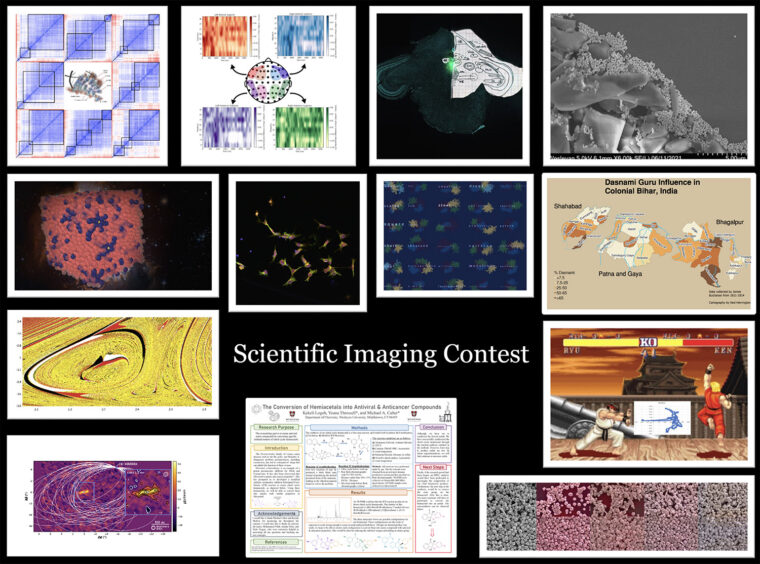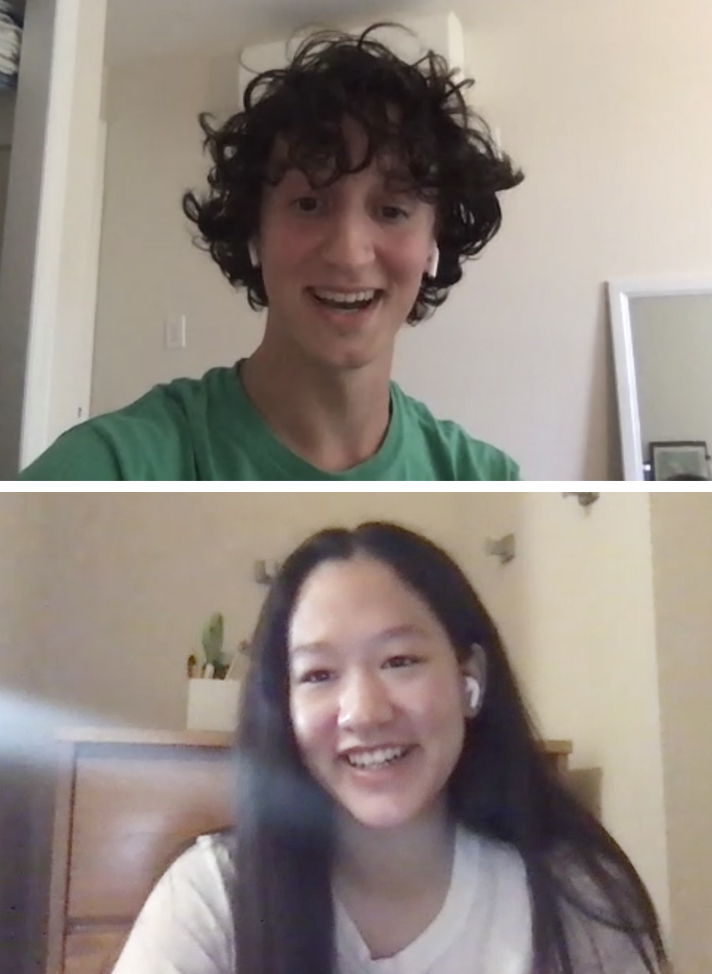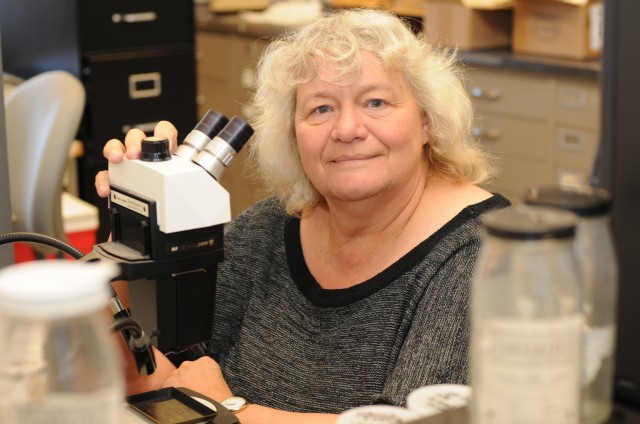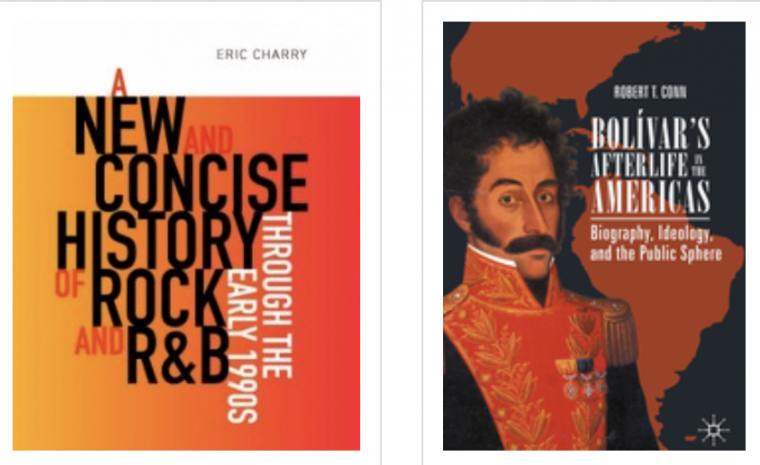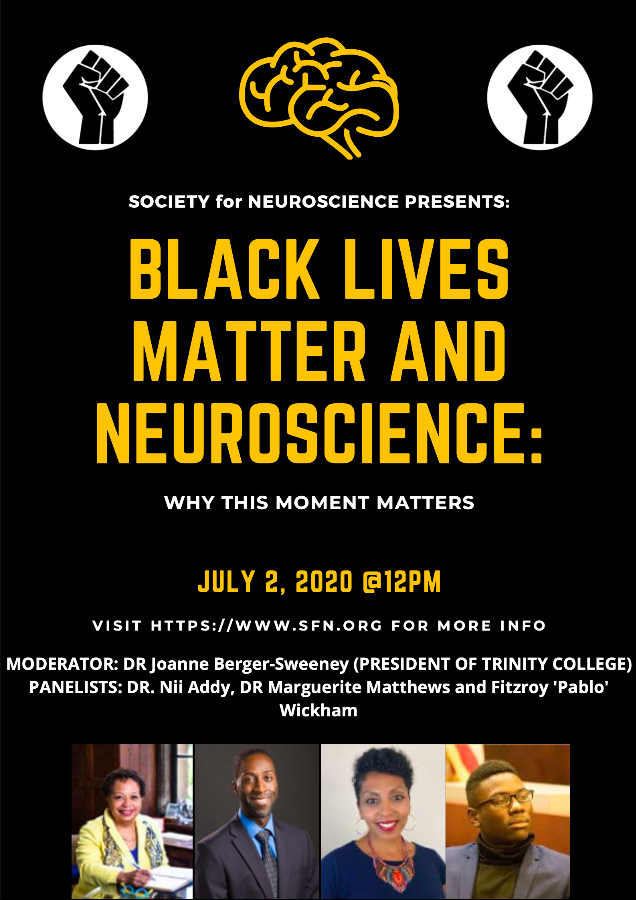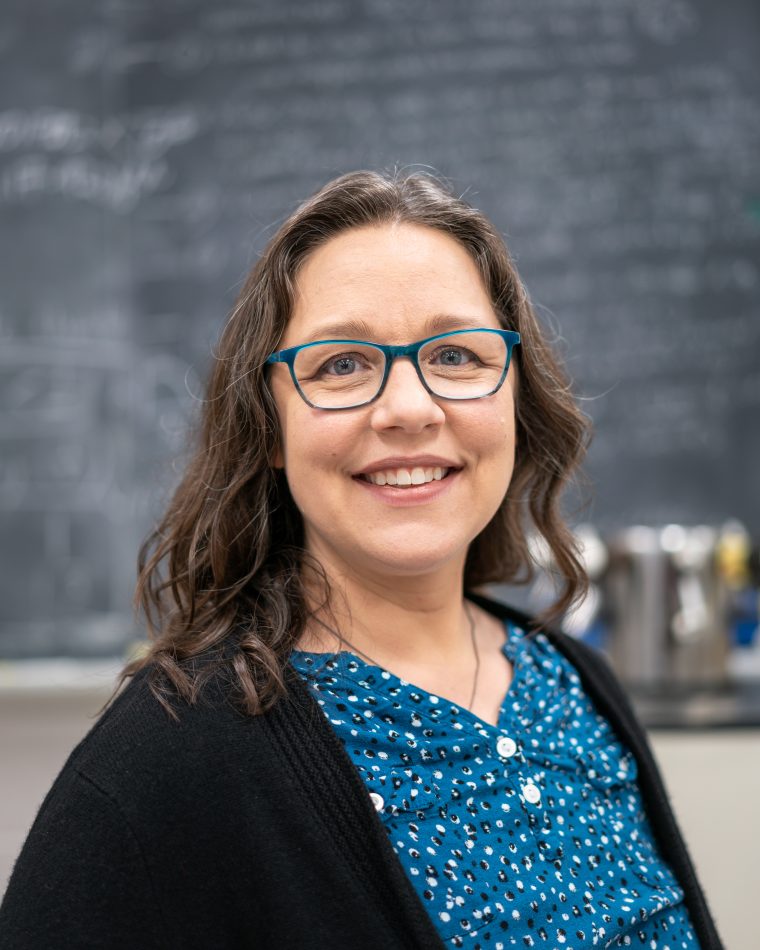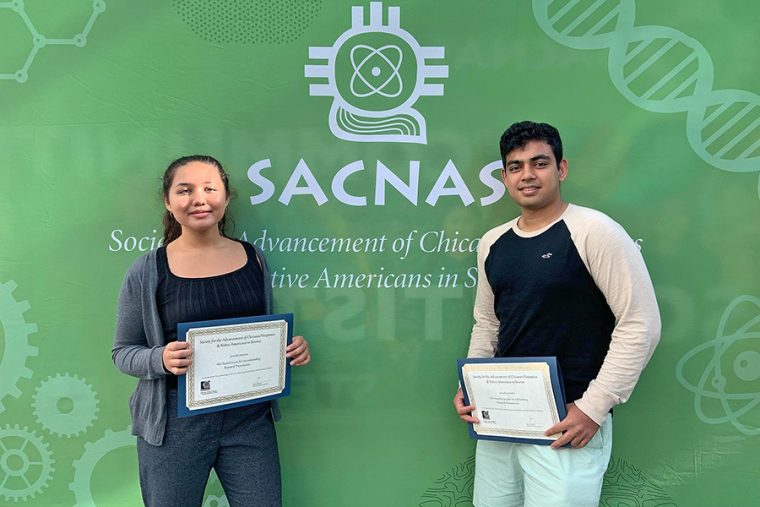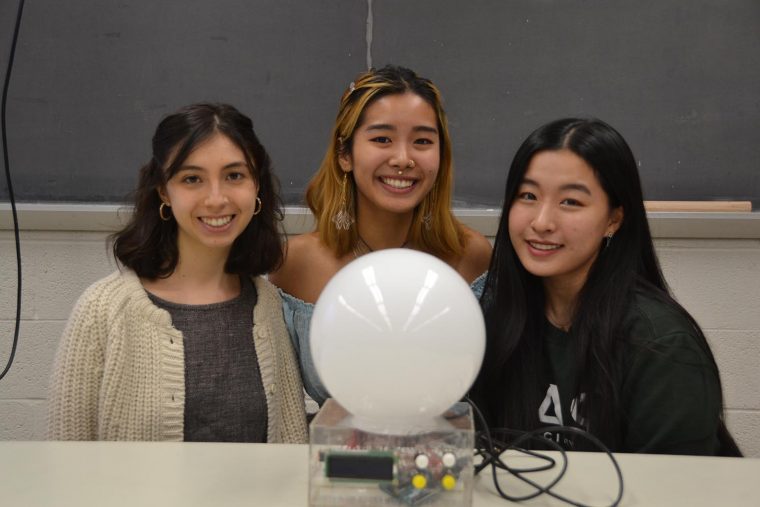At first glance, a viewer sees a single image of pink-tinted cubes, resembling a bacteria culture from high school biology. But upon closer examination, the viewer begins to see a series of other shapes—triangles to hexahedrons to tetahexahedraons (cubes with four-sided pyramids on each face). "If you stare at this image for a while, you can see that it's actually a series of five images in the top row, and five images on the bottom row, and each of these images show us nanoparticles that are made of gold and copper," said Brian Northrop, professor of chemistry. "It's intriguing, captivating,…
Scientists have already discovered more than 3,500 exoplanetary systems (planets orbiting around stars) in the universe, with the number continually expanding. By using Wesleyan's new 24-inch telescope, Kyle McGregor '24 is on the hunt for more, specifically systems involving two planets. To find them, he measures the light from stars over time, noting that the light will decrease when an exoplanet passes in front of a star, blocking the radiated light to Earth. "The measuring of this change in light, known as the 'transit method,' allows us to detect the presence of these distant worlds and to study their properties,"…
Ellen Thomas, Harold T. Stearns Professor of Integrative Sciences, is the co-author of five scientific papers. All are part of the output of international collaborations of which her Wesleyan-based research was a part, funded by the National Science Foundation over the last three years. “All the studies look at different aspects of the behavior of microscopic organisms in the oceans under past environmental stress, whether caused by the impact of the asteroid that killed the dinosaurs, or past episodes of global warming or cooling, and at the effect of different rates of environmental change on these life forms," she said.…
Ellen Thomas, Harold T. Stearns Professor of Integrative Sciences, Smith Curator of Paleontology of the Joe Webb Peoples Museum of Natural History, and University Professor in the College of Integrative Sciences, is the recipient of the 2020 Joseph A. Cushman Award for Excellence in Foraminiferal Research. At Wesleyan, Thomas investigates oceanic benthic foraminifera (eukaryotic unicellular organisms) as proxies for the impact of changes in environment and climate on living organisms on various time scales. This fall, she's teaching the courses Research Frontiers in the Sciences and Mass Extinctions in the Oceans. Brian Huber, president of the Cushman Foundation for Foraminiferal…
Several faculty have recently authored or co-authored books, book chapters, and articles that appear in prestigious academic journals. BOOKS AND BOOK CHAPTERS Eric Charry, professor of music, is the author of A New and Concise History of Rock and R&B through the Early 1990s (Wesleyan University Press, 2020). Robert "Bo" Conn, professor of Spanish, is the author of Bolívar’s Afterlife in the Americas: Biography, Ideology, and the Public Sphere (Palgrave Macmillan, 2020). Anthony Ryan Hatch, associate professor of science in society, is the author of three book chapters: “The Artificial Pancreas in Cyborg Bodies,” published in The Oxford Handbook of…
As the Black Lives Matter movement continues to shine a light on the Black experience in America, one Wesleyan student is doing his part to foster better understanding for students of color in STEM fields. On July 2, Fitzroy "Pablo" Wickham '21 participated in a panel discussion on "Black Lives Matter and Neuroscience: Why This Moment Matters." The event, hosted by the Society for Neuroscience and moderated by Trinity College President Joanne Berger-Sweeney, provided a forum to discuss hurdles faced by Black students and faculty in STEM and ways to enhance recruitment, mentoring, and retention in STEM fields. Wickham, a…
As part of the University's efforts to "activate campus," a third prehistoric creature has taken up residence at Wesleyan. The new Mosasaur exhibit is on permanent display inside Olin Library and is a collaboration of faculty, student, and staff efforts. Mosasaurus hoffmannii Mantell (Mosasaur), a marine lizard, lived in the oceans during the Late Cretaceous period (66 to 68 million years ago) when the last dinosaurs walked the Earth. Mosasaurs had long, snake-like bodies with paddle-like limbs and flattened tails. Some specimens grew to be more than 50 feet long. In 1871, chemist Orange Judd of the Wesleyan Class of…
Erika Taylor, associate professor of chemistry, is honored for being among the "Top 35 Women in Higher Education" in the March 20 issue of Diverse. Taylor joined the Wesleyan faculty in 2007 and teaches courses in the areas of organic chemistry, biochemistry, environmental chemistry, and bio-medicinal chemistry, among others. She's also associate professor, environmental studies, and associate professor, integrative sciences, and takes a multidisciplinary approach to investigating problems at the biological chemistry interface. Diverse acknowledged Taylor for "striv(ing) to find ways to exploit enzymes found in nature to perform reactions that can help advance the fields of chemistry and medicine."…
Ellen Thomas, Harold T. Stearns Professor of Integrative Sciences, Smith Curator of Paleontology of the Joe Webb Peoples Museum of Natural History and University Professor in the College of Integrative Sciences, is the co-author of five new publications. They include: "On impact and volcanism across the Cretaceous-Paleogene boundary," published in Science, Jan. 17, 2020. Also, see this research in The New York Times and National Geographic. "Stable isotope constraints on marine productivity across the Cretaceous-Paleogene mass extinction," published in Paleoceanography and Paleoclimatology, Volume 34, June 2019. "Refining the planktonic foraminifera I/Ca proxy: results from the Southeast Atlantic Ocean," published in Geochimica…
Two Wesleyan McNair Fellows recently participated in the largest multidisciplinary and multicultural STEM diversity event in the country. From Oct. 31–Nov. 2, Elizaveta "Liz" Atalig '21 and Ekram Towsif '21 joined more than 4,000 peers at the 2019 SACNAS (Society for Advancement of Chicanos/Hispanics and Native Americans in Science) conference in Hawaii. For more than 45 years, SACNAS has served as an inclusive organization dedicated to fostering the success of Chicano/Hispanics & Native Americans, from college students to professionals, in attaining advanced degrees, careers, and positions of leadership within STEM. Attendees of the three-day conference are immersed in cutting-edge scientific…
(By Kayleigh Schweiker '22) As scientific study regarding the mass extinction of marine life during the Cretaceous era has progressed, theories including extraterrestrial impact and intense volcanism have surfaced. However, a recent study co-authored by Ellen Thomas, Harold T. Stearns Professor of Integrative Sciences, suggests that carbon impact—not volcanism—was key in driving the Cretaceous mass extinction. In a paper titled "Rapid ocean acidification and protracted Earth system recovery followed the end-Cretaceous Chicxulub impact," which was published in the Oct. 21 issue of the Proceedings of the National Academy of Sciences (PNAS), Thomas and her colleagues discuss how increases in ocean…
In December, the students of IDEAS 170: Introduction to Design and Engineering presented inventions of their own design. These final group projects are possibly the next new life hacks everyone will crave: a projector that doesn't rely on electricity (great for watching movies when the power is out), a chair that folds flat (packs easily and saves space), or a dorm room light that mimics the sun (helps set your sleep/wake cycle naturally). Additionally, one group of Wesleyan students collaborated with students from Renbrook School in West Hartford. Betsy Flynn, Lower School Learning Specialist at Renbrook, explained: "The Renbrook students…


